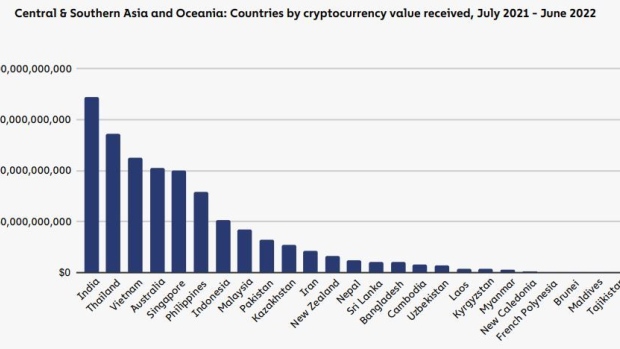Feb 24, 2023
FTX Debacle Spurs Indonesia to Revamp Crypto Sector by Setting Up National Digital-Asset Exchange
, Bloomberg News

(Bloomberg) -- Indonesia is drawing on the structure of the stock market to revamp crypto trading and mitigate the risks exposed by the collapse of the FTX digital-asset exchange.
A key plank of the plan is a proposed state-backed crypto bourse where private-sector platforms will execute trades, according to the Commodity Futures Trading Regulatory Agency, which currently oversees digital assets.
“The hard part is we can’t find a benchmark for such a crypto bourse,” the agency’s head Noordiatmoko said in an interview. “This could be the first.” Other planned state-backed bodies would handle clearing and custody to protect assets and avoid any replay of the alleged fraud at FTX, he said.
The blueprint resembles the way stock markets work by separating trading, clearing and custody under official oversight and comes as regulators globally step up scrutiny of private crypto bourses. The FTX exchange slid into a chaotic bankruptcy in November, leaving an $8 billion financial hole and stoking worries that too many such platforms are opaque and risky for investors.
Mid-Year Target
The roughly two dozen crypto exchanges in Indonesia would have to trade on the state-mandated national bourse, acting as brokers, said Noordiatmoko. The new exchange may be established as early as mid-2023 and will be run by a private-sector company rather than the government, he added.
The archipelago of about 270 million people ranked 20th out of 146 economies in the 2022 global crypto adoption index from Chainalysis, a specialist in tracking digital-asset transactions.
But monthly trading volumes have crashed 95% to $233 million last month from a peak of $4.7 billion in May 2021, data from CryptoCompare shows.
Recently passed Indonesian legislation classifies digital assets as financial securities and oversight of the sector will shift over the next two years to the Financial Services Authority from the commodity futures trading agency.
By regulating tokens as securities and setting up a national crypto exchange, the government is “recognizing their validity as financial and investment instruments in the country,” said Vincent Thong Ming Sen, content manager for Avocado DAO, a metaverse and blockchain gaming guild.
He said the shift entails tougher reporting and disclosure rules to tackle money laundering and terrorism financing risks, adding that only time will tell whether the overall approach amounts to “overkill.”
NFT Hit
Indonesian officials are perceived to have an open mind on digital assets, whereas the US is among countries cracking down after last year’s $1.5 trillion market rout caused a series of crypto outfits to blow up.
The government’s attitude was illustrated by college student Sultan Gustaf Al Ghozali’s brush with officialdom. He became a social media hit after earning 1.5 billion rupiah ($98,500) selling nonfungible tokens of selfie pictures. The tax office congratulated him and reminded him to pay the requisite taxes.
Earlier deadlines for the national crypto exchange slipped but Noordiatmoko insisted it will be set up before oversight of digital assets passes to the Financial Services Authority.
Bank Indonesia has previously indicated that a blockchain-based version of the rupiah would be the only digital legal tender in the Southeast Asian nation.
For crypto market prices: CRYP; for top crypto news: TOP CRYPTO.
--With assistance from Suvashree Ghosh, Sidhartha Shukla and Soraya Permatasari.
©2023 Bloomberg L.P.





